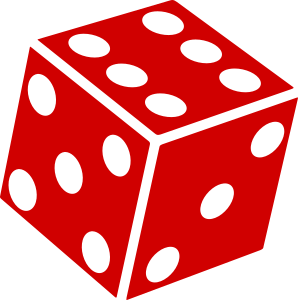I rarely ask my players for character backgrounds. Partly because I had players that just wanted to play and didn't want homework, and partly because when players did give me backgrounds then what I got was 10-20 pages of ego stroking that I had little desire to read.
However, when done right a character background can be a valuable asset to adding an extra layer to the gaming experience. And when I say "done right", your mileage may vary. Some GMs are fine with multi-paged backgrounds. The following is just a stream of my own opinions.
1) "Brevity is the Soul of Wit."
If it's important, it can be said briefly. If you have an idea for backstory, try to focus on those things that the GM can actually use and communicate the overall theme of your character in 1-2 paragraphs. It can be done.
2) Don't Ride Coat Tails
I have seen this A LOT. Please stop it.
In a game that is tied to a movie, novel, or TV show, you always get that player who wants his character to be "extra special" by being the brother, sister, cousin, significant other of the coolest character in the show.
Here are some real examples I have come across...
"I'm Drizz't's long lost brother/twin."
"Qui Gon Jin was my husband and we had two kids."
"My last name is Solo."
This is supposed to be your story, your time to shine. Make your character stand on his/her own. You shouldn't need these crappy ties to make your character special. In fact, it makes everyone else at the table roll their eyes. It's a sure fire way to loose the respect of your fellow players.
3) Don't Stick Your Chocolate In Someone Else's Peanut Butter (Without Asking)
Similar to above, don't create a relationship in your character background to another character without first clearing it with that character's player. This is just bad mojo. You are, in essence, writing an element of someone else's character background without their permission and you don't have the right. That's their character. Ask first.
So here's an example...
...of what, in my opinion, makes a good character background.
Mairead
She grew up the only child of a blacksmith and was treated more as a son instead of a daughter. She worked hard with her father, and played hard with the boys giving her the reputation of an unmarriageable Tomboy which suited her just fine. When the opportunity arose to choose her own path in life, she chose the path of steel and blood as an adventurer. Her most prized possession is the sword her father forged for her before she left home.
Joshua Malcott
Joshua was the eldest son in a long line of river smugglers. If asked about why he has chosen to get involved with the war, he mentions that "shadow demons ate his boat". His cavalier manner belies the truth, that it was his family's boat and the demons consumed his father and brothers before his eyes. Under his lazy exterior burns a rage and need for revenge but his lack of trust in others forces him to keep his motivations hidden behind a roguish smile.
To Sum Up
To me a good character background should cover the following points in as few words as possible.
1) Where did I come from/ what type of life.
2) Why am I adventuring?
3) And what motivates me/ why?
Now I'm not an expert on this subject and I'd like to hear any comments people have with what I might have left out.



